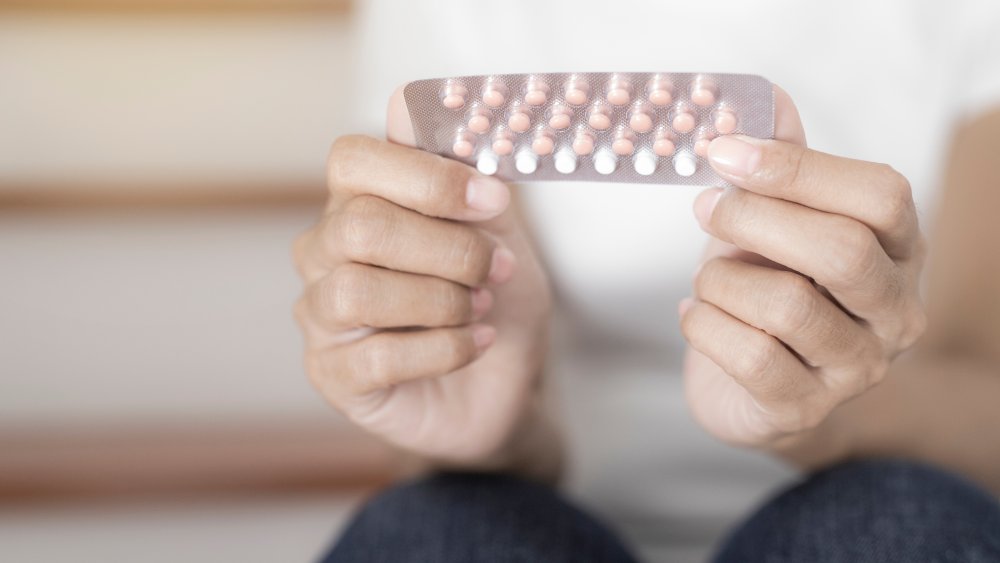Unexpected Side Effects Birth Control Has On Your Mental Health
Besides being an effective contraceptive (when properly used), hormonal birth control is used to treat a variety of symptoms. Conditions like endometriosis, acne, and PMS symptoms have all been proven to be positively affected by birth control pills, according to WebMD.
But the pill has also been linked to depression, and that's a serious side effect that nobody wants to deal with. The problem is, the research is inconclusive, but if you have symptoms of depression and you take birth control pills, it's worth talking to your doctor.
One early study published in the journal Expert Opinion on Drug Safety noted that depression is the leading cause cited for stopping the use of oral contraceptives. But writing for Harvard Health Publishing, Dr. Monique Tello, MPH, pointed out that a critical literature review found that studies conducted on the link were of poor quality. In her research, however, Tello found that one study done in Denmark was high quality and did show a strong link between hormonal birth control and depression.
What kinds of birth control affect mental health?
Hormonal birth control is implicated as a possible cause of depression because it introduces synthetic hormones into the body, according to Medical News Today. Hormones interact with brain chemistry and can impact mood and other health factors. Tello noted that, according to the Danish study, progesterone-only types of birth control, including IUDs, are linked with higher rates of depression. That's important because doctors previously thought that IUDs only worked locally, and had no systemic effect on the rest of the body.
Depression is a serious condition that requires intervention. Symptoms include ongoing sadness or anxiety, hopelessness, fatigue, mood changes, low energy, problems concentrating, no interest in things that previously interested you, appetite changes, aches and pains, suicidal thoughts or attempts, and low libido, according to Healthline. If you're experiencing any of these, contact your doctor right away, or reach out to the Substance Abuse and Mental Health Administration's helpline at 1-800-622-HELP (4357).


